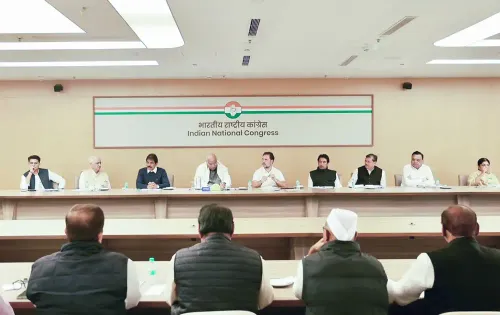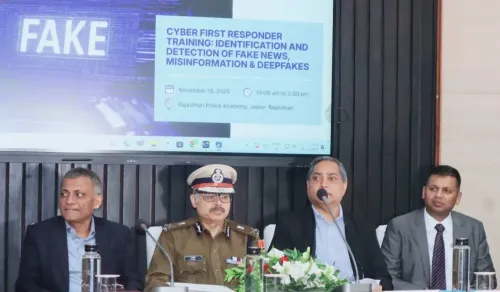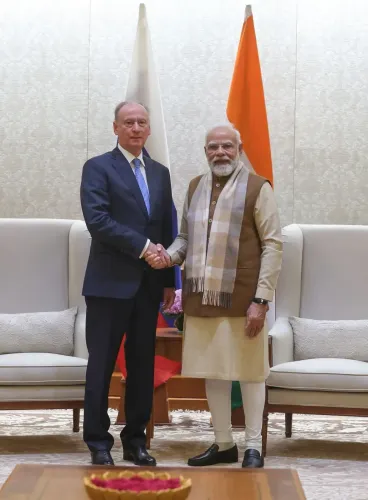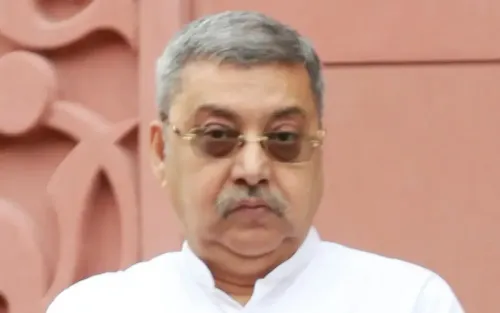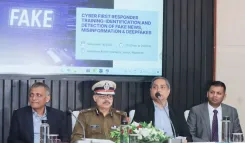How is the Australian Command and Staff College Team Enhancing Defence Understanding in India?
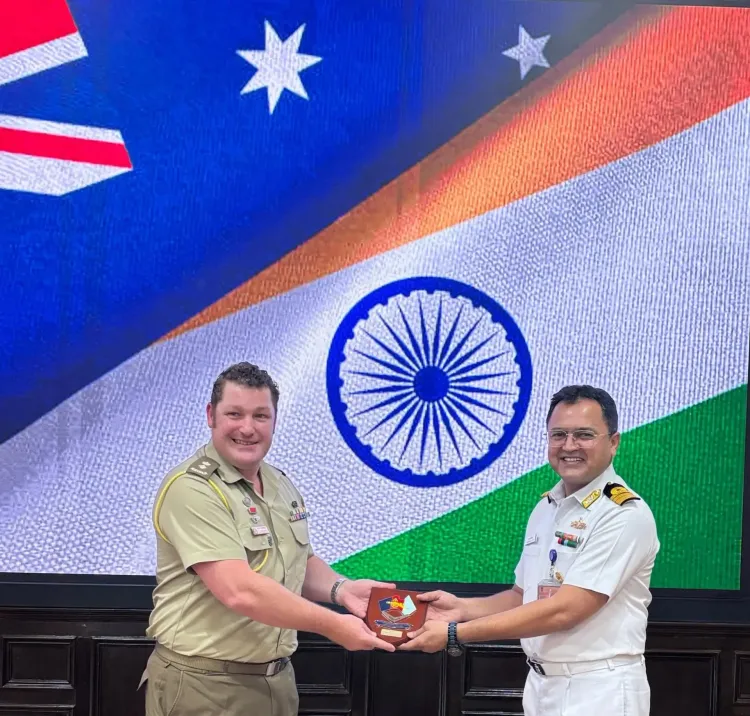
Synopsis
Key Takeaways
- Australian Command and Staff College delegation meets with Indian defence officials.
- Focus on strengthening bipartisan defence relationships.
- Significant outcomes include a mutual submarine rescue agreement.
- Rajnath Singh's visit marks a pivotal evolution in Indo-Australian relations.
- Joint Staff Talks established for enhanced military cooperation.
New Delhi, Nov 18 (NationPress) In a bid to enhance bipartisan defence comprehension, a delegation from the Australian Command and Staff College was welcomed by the Headquarters, Integrated Defence Staff (HQ, IDS), as reported by an official on Tuesday.
“Throughout their week-long stay, the 11-member delegation will interact with various Service Institutions, Defence Public Sector Undertakings, and private Defence Industries,” stated HQ, IDS, India Army, in a message on X.
“As part of an initiative to fortify Defence alliances, HQ_IDS welcomed the Australian Command & Staff College, Capability Management Course team led by Lt Col Mathew Clissold,” it added.
A senior HQ, IDS officer provided the delegation with insights into India’s strategic outlook for a more profound bilateral defence connection.
Last month, Defence Minister Rajnath Singh made a historic trip to Australia—the first by an Indian Defence Minister in 12 years—where the Australia–India relationship was elevated from mere strategic alignment to significant operational depth.
According to reports, the timing of Singh’s visit coincided with Exercise AUSTRAHIND, a bilateral land exercise held in Perth, Australia, from October 13 to 26, focusing on company-level operations in urban and semi-urban areas.
“Defence Minister Rajnath Singh’s visit to Australia on October 9-10 marked a pivotal moment in Indo-Australian relations. The visit yielded tangible, future-oriented defence and security cooperation outcomes that align closely with the Indo-Pacific strategies of both nations,” noted an analysis from the Australian Institute of International Affairs.
“As this visit coincided with the fifth anniversary of the Comprehensive Strategic Partnership, it underscored how Canberra and New Delhi perceive each other as security allies, emphasizing the operational alignment across maritime security, industry, logistics, defence technology, and intelligence sharing,” it further elaborated.
The report highlighted that Singh's visit was centered around the inaugural Australia–India Defence Ministers' Dialogue, which produced a comprehensive joint statement. The primary outcome was the Australia–India Implementing Arrangement on Mutual Submarine Rescue Support and Cooperation.
This agreement is set to enhance trust and coordination under the sea between the two nations while also addressing China’s power projection in the Indian Ocean, often referred to as a two-ocean strategy. The establishment of Joint Staff Talks stands out as another crucial advancement, creating a solid platform for joint exercises, operations, and interoperability across various domains.

